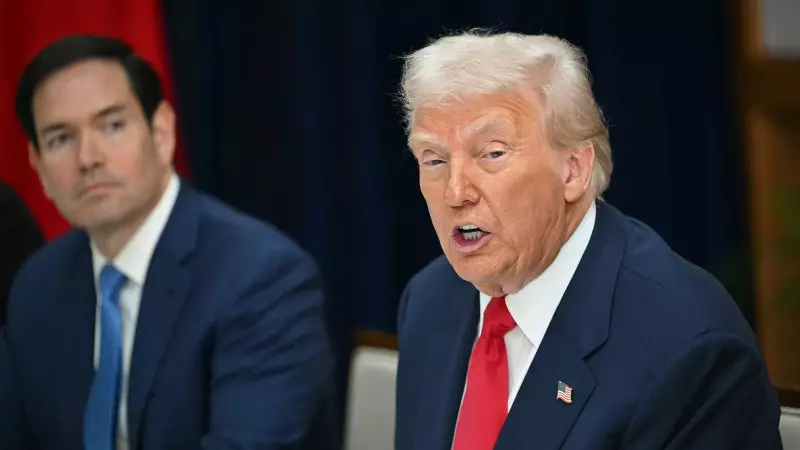
In a startling revelation that has sent shockwaves through international diplomatic circles, prominent US Senator Marco Rubio has leveled serious accusations against Hamas, claiming the militant organization is systematically diverting and stealing crucial humanitarian aid destined for Gaza's civilian population.
The Allegations That Could Reshape Gaza Policy
Speaking with the authority of a seasoned foreign policy expert, Senator Rubio didn't mince words when describing what he called "systematic theft" of aid by Hamas. "The humanitarian assistance meant for innocent civilians is being intercepted and misappropriated by Hamas operatives," Rubio asserted, painting a grim picture of aid distribution in the conflict-ravaged territory.
Trump's Controversial Peace Plan Takes Center Stage
Amid these explosive allegations, Rubio threw his weight behind former President Donald Trump's proposed peace initiative, which contains a controversial but clear mandate: the complete disarmament of Hamas as a non-negotiable precondition for any lasting peace agreement.
"Without disarming Hamas, any peace process is doomed to failure," Rubio emphasized, aligning himself with Trump's hardline approach to the Gaza conflict. This endorsement comes at a critical juncture in Middle East diplomacy, as various international stakeholders seek pathways to de-escalate tensions.
The Humanitarian Crisis Deepens
The timing of these allegations couldn't be more significant, with Gaza facing one of the most severe humanitarian crises in recent memory. Rubio's claims suggest that even the limited aid reaching the territory isn't benefiting those who need it most—ordinary Gazans struggling to survive amid widespread destruction and economic collapse.
International Community Faces Tough Questions
These developments raise uncomfortable questions for the international community and aid organizations operating in Gaza. How can humanitarian assistance be effectively monitored? What mechanisms need to be implemented to prevent aid diversion? And most importantly, how can the most vulnerable civilians be protected from becoming pawns in this political struggle?
The situation remains fluid, with Rubio's statements likely to influence ongoing debates about Gaza policy in Washington and other world capitals. As the 2024 presidential election landscape takes shape, the future of US involvement in Middle East peace processes hangs in the balance, making this development one to watch closely in the coming weeks and months.





